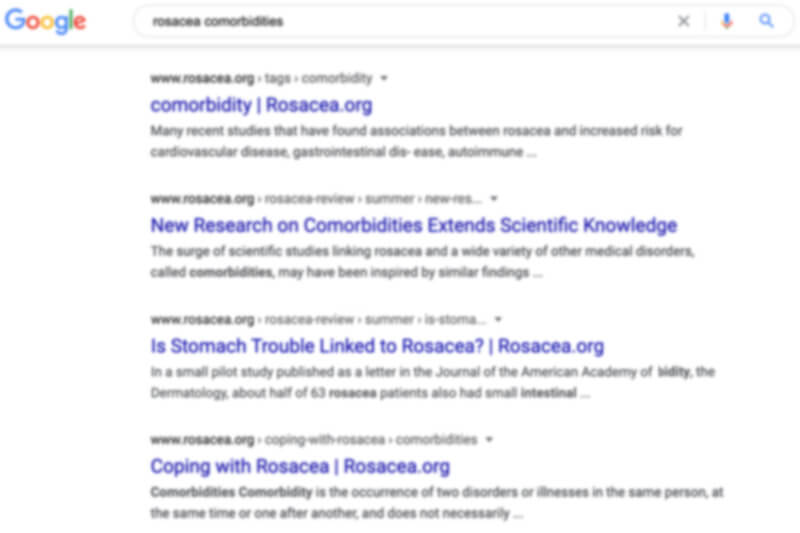 In recent years a number of studies have been published investigating rosacea comorbidity, the simultaneous occurrence of rosacea and other diseases, such as gastrointestinal diseases or cancer. Researchers at the Johns Hopkins University School of Medicine set out to determine if any correlation could be found between public interest in rosacea and its many comorbid conditions.
In recent years a number of studies have been published investigating rosacea comorbidity, the simultaneous occurrence of rosacea and other diseases, such as gastrointestinal diseases or cancer. Researchers at the Johns Hopkins University School of Medicine set out to determine if any correlation could be found between public interest in rosacea and its many comorbid conditions.
Using data from Google Trends, a free tool that calculates searches for a specific term, the scientists analyzed 14 years worth of searches in the US, Canada, the United Kingdom and Australia. The team then selected 24 conditions known to be often comorbid with rosacea. They made a total of 96 comparisons, comparing search trends for rosacea to search trends for each comorbid condition in each of the four countries.
The research team found that people searched for rosacea most in the spring and least in the winter. In the United States, a significant correlation was seen between searches for rosacea and depression. In the U.K. and Canada, searches for irritable bowel syndrome and ulcerative colitis were seen to be significantly associated with searches for rosacea. Search data for hypothyroidism reflected a strong positive correlation with rosacea in the UK, but a negative correlation with rosacea in Australia. In Canada, a correlation was found between searches for diabetes and rosacea. Osteoporosis was positively correlated to searches for rosacea in Australia.
Overall, the researchers found that associations between searches for rosacea and comorbid conditions vary depending on the country studied, and noted that the variation among countries is likely to be caused by many things, including environmental, social and cultural factors, as well as varied rates of disease prevalence.
Reference:
Marchitto M, Chien AL. Rosacea and associated comorbidities: a Google search trend analysis. J Clin Aesthet Dermatol 2020;13(7)36-40.